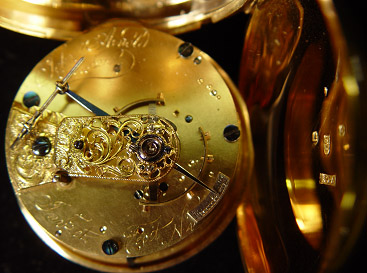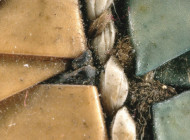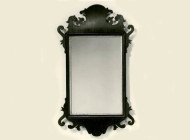NEWPORT, R.I. — An important Eighteenth Century marine timepiece, made as part of the British race to determine longitude at sea, has been discovered in the collections at the Newport Historical Society.
Ingrid Peters, a staff member of the Newport Historical Society, recently traveled to the Royal Observatory, Royal Museums Greenwich, England, to have curator of Horology Rory McEvoy examine a pocket watch from the society’s collections. McEvoy verified that the watch was made by John Arnold of London and is fourth in a series of marine watches, circa 1772.
Arnold was one of several men competing for the Board of Longitude prize to produce a chronometer that would ensure safe and accurate navigation. Only a few of these paradigm-shifting time pieces from this period of technological development are known and in public hands, and the discovery of Arnold’s fourth example adds significantly to the scientific record. Arnold’s third chronometer is in the collections at the British Museum; the first, second and fifth in the series are missing.
John Harrison (1639–1776) was awarded the Board of Longitude’s principal award for producing the first accurate marine timekeeper that could ascertain longitude at sea. Arnold (1736–1799) is credited with introducing many original ideas and perfecting those of others. This watch, produced in the early 1770s while one of Arnold’s see-saw escapement timekeepers was away on sea trials features a pivoted detent escapement; others had designed such mechanisms, but Arnold’s was a technological improvement.
The watch was acquired by Peleg Clarke in 1792. Clarke was a descendant of one of Newport’s first English settlers and wealthy merchant of the American colonial period who likely bought the watch from Arnold during a trip to London. He was an eyewitness to the Boston Tea Party and recorded his impressions in a letter now also in the society’s collections. The watch was passed down in the Clarke family for over 200 years, as a pocket watch, until it was donated to the society in 1997.
For more information, www.NewportHistory.org.





